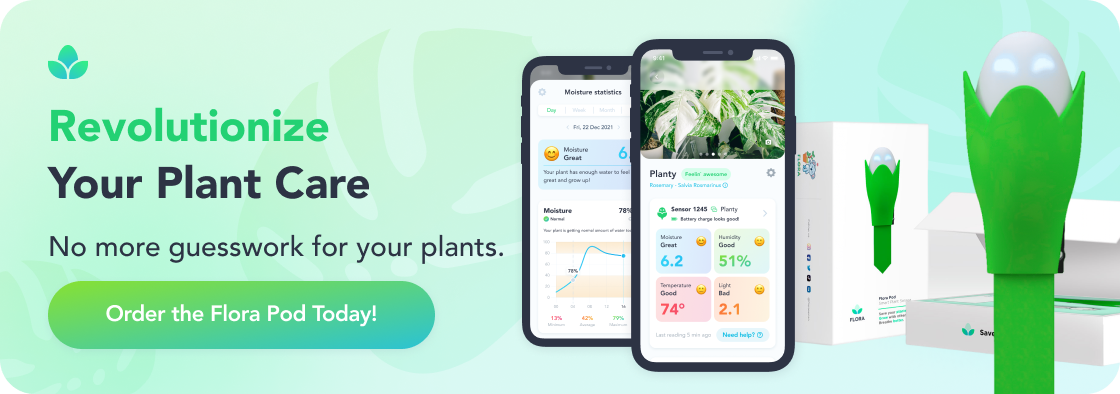Repotting Fiddle Leaf Fig: A Complete How-To Guide

Hey plant lovers! Today, we're diving into the world of Fiddle Leaf Figs, specifically focusing on repotting. This task may seem daunting, but it's a vital part of your plant's life cycle. Proper repotting can rejuvenate your Fiddle Leaf Fig, encouraging healthier growth and longevity. Let's walk through the process together, ensuring you feel confident and ready to give your green buddy the care it deserves.
Understanding When to Repot
Identifying the Right Time for Repotting
Knowing when to repot fiddle leaf fig is key. Typically, these plants need repotting every 1-2 years. However, the signs to look out for include:
Roots Circling the Pot: If you notice roots peeking out of the drainage holes or circling the surface of the soil, it's time for a bigger home.
Stunted Growth: A lack of new growth can indicate that your plant has outgrown its current pot.
Watering Frequency: If you find yourself watering more often because the soil dries out quickly, this could be a sign that your plant needs more room to grow.
Best Season for Repotting
The best time for repotting is during the growing season, typically in the spring. This timing gives your plant a chance to recover and grow into its new pot during its most active growing phase.
The Repotting Process
Gathering Your Materials
Before you start, make sure you have everything you need:
A New Pot: Choose one that’s 2-3 inches larger in diameter than the current one.
Fresh Potting Mix: Select a high-quality mix suitable for Fiddle Leaf Figs.
Drainage Materials: Consider adding a layer of pebbles at the bottom of the new pot for improved drainage.
Gloves and Trowel: These will make the process cleaner and easier.
Step-by-Step Repotting Guide
Step 1: Prepare the New Pot
Begin by placing a layer of drainage materials, like pebbles or broken terracotta pieces, at the bottom of the new pot. This layer prevents soil from clogging the drainage holes and facilitates better water flow.
Then, add a layer of fresh potting mix. This should be a high-quality mix that drains well yet retains sufficient moisture.
Fill the pot about one-third to half full, creating a stable base for your plant.

Step 2: Remove the Plant
Carefully remove your Fiddle Leaf Fig from its current pot. If the plant is snug in its pot, gently tap the sides and bottom of the pot to loosen it.
Turn the pot sideways and support the plant by the base of its stem with one hand.
Gently pull the pot away with the other hand. If the plant is resistant, use a trowel to ease the soil away from the edges of the pot.
Once out, inspect the roots. If they are densely coiled, gently tease them apart to encourage outward growth in the new pot.

Step 3: Transplant
Now, it's time to place your plant in its new pot.
Carefully set the plant into the pot, centering it. The top of the root ball should sit about an inch below the rim of the pot to allow room for watering.
Once positioned, start filling in around the plant with more potting mix. Do this gently but firmly, ensuring the soil supports the plant without burying it deeper than its original level.
Avoid compacting the soil too much, as this can impede water flow and air circulation.
Step 4: Water Thoroughly
After repotting, water your Fiddle Leaf Fig generously. This helps the soil settle around the roots and eliminates air pockets, ensuring good contact between the roots and the soil. Water until you see it running out of the drainage holes. After watering, allow the pot to drain completely. This initial deep watering is crucial for helping your plant adjust to its new home.
Post-Repotting Care
After repotting, place your plant in a location with indirect, bright light. Avoid direct sunlight for a few days to prevent stress. Monitor the soil moisture closely, as your plant will need time to adjust to its new environment.
Repotting your Fiddle Leaf Fig doesn't have to be intimidating. By following these steps, you'll ensure your plant continues to thrive in its new pot. Remember, at Flora, we’re here to help you nurture every leaf and root of your plant family. Happy repotting!
Fern's Leafy Learnings
Timing: Repot Fiddle Leaf Figs every 1-2 years, ideally during the spring.
Signs to Repot: Look for circling roots, stunted growth, or increased watering frequency.
Choosing a Pot: Select a new pot that’s 2-3 inches larger in diameter than the current one.
Repotting Steps: Prepare the new pot, remove the plant, transplant, and water thoroughly.
Post-Repotting Care: Provide indirect light and monitor soil moisture after repotting.
Embark on a flourishing journey with plants that aren’t just decor, but companions.
At Flora, we not only bring you a vibrant selection of locally sourced, rare, and delightful plants, but we also serve as your continuous guide in your plant parenting voyage, ensuring every leaf in your sanctuary thrives. With our Flora Pod™ technology and a nurturing community of over 250,000 plant lovers, we cultivate a space where every plant parent - novice or expert - can blossom.
We propagate with a commitment to sustainability, connection, and ceaseless growth, fostering a community where each member, and their plants, are cherished and nurtured.
Crave a lush, thriving green space? Adopt a plant from Flora today!
Flora Pod™ is featured on Shark Tank!

5 Signs Your Houseplant Needs Repotting Now
Mar 02, 2026
6 Anthurium Benefits You Didn't Know About
Mar 02, 2026

How to Prune Your Houseplants Before Spring Growth Season
Mar 02, 2026

10 Best Houseplants for Spring Repotting Success
Mar 02, 2026

Can ZZ Plants Survive in Low Light Conditions?
Mar 02, 2026

5 Critical Pre-Spring Pruning Tips for Houseplants
Mar 02, 2026

Can Succulents Survive Winter Outdoors in Your Climate Zone?
Mar 02, 2026

Which Houseplants Are Toxic to Cats and Should You Avoid Them?
Mar 02, 2026




